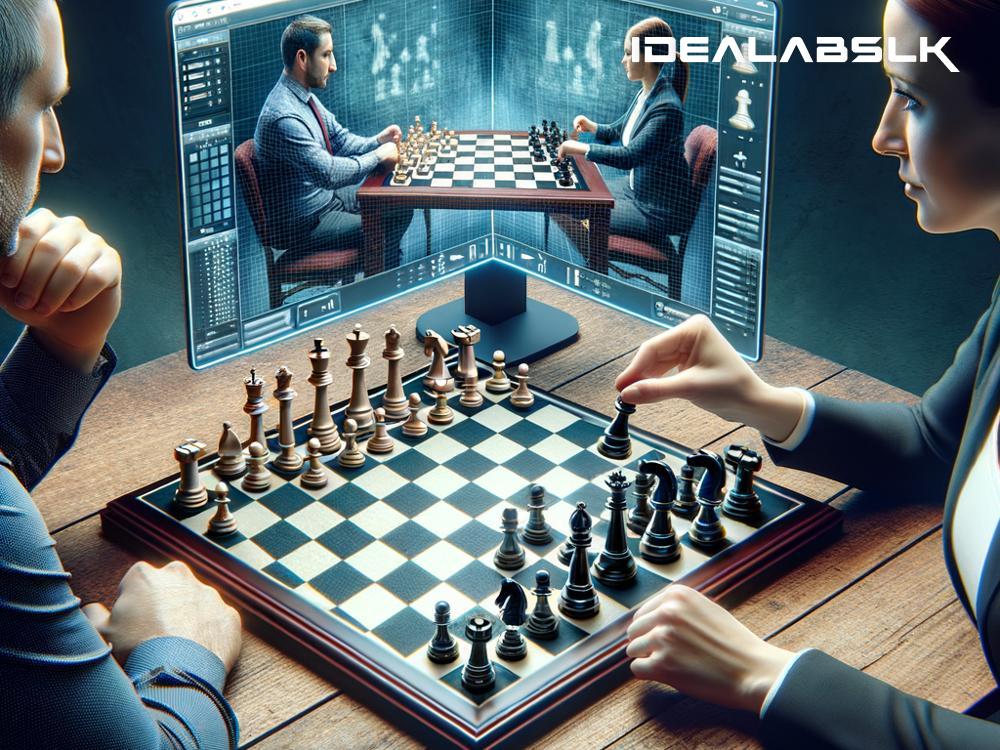Title: The Game Changer: How AI Revolutionized Chess
Once upon a time, in the world of chess, humans were the uncontested champions, grandmasters were revered, and every move on the chessboard was a testament to decades of practice, strategy, and human intellect. But then, something extraordinary happened — the entry of Artificial Intelligence (AI) into the realm of chess. This wasn't just a gentle wave but a tsunami that changed the landscape of chess forever. Let's take a journey into how AI revolutionized this ancient game, making it more accessible, challenging, and intriguing than ever before.
The Checkered Beginning
Our story starts in the mid-to-late 20th century when computing technology was just scratching the surface of its potential. Early computers could perform simple calculations and tasks, but taking on the complexity of chess seemed like a distant dream. However, that changed with "Deep Blue," an AI developed by IBM that took the world by storm in 1997 by defeating the reigning world chess champion, Garry Kasparov. This event was more than a match; it symbolized the dawn of a new era where human intellect met its match against the processing power of machines.
The democratization of learning
Before AI, mastering chess was a journey of endless books, expensive coaches, and playing countless games with more experienced opponents — a path accessible to only a few. AI changed that by democratizing chess learning; now, anyone with a smartphone or computer could play against an AI, learn from their moves, and improve their game exponentially. Apps and websites equipped with AI provide personalized lessons, hint at possible moves, and analyze games to point out strengths and weaknesses. This level of accessibility ignited a global chess renaissance, inviting players of all ages and backgrounds to partake in this royal game.
Revolutionizing strategies and openings
The introduction of AI into chess didn't just change how we play; it revolutionized what we play. Traditional strategies and openings were put to the test, with AI often suggesting unconventional or previously underestimated moves. This pushed players to adapt and think outside the traditional confines of chess theory, leading to a much richer tapestry of gameplay and strategies. For instance, AI's ability to calculate millions of positions per second introduced novel openings and defenses, forcing players to be more creative and adaptable in their approach.
The creation of superhuman opponents
AI's involvement in chess created opponents that could outthink the best of human players consistently. This was a double-edged sword; on one hand, it meant that even top-tier players could find a challenge anytime they wished, pushing the boundaries of their skills to new heights. On the other hand, it led to a sobering realization that human intellect has its limits when pitted against the brute force calculations of AI. However, this didn't dishearten players; instead, it spurred a new form of collaboration where humans began using AI to explore new strategies and improve their understanding of the game.
Enhancing viewer experience
AI didn't just transform the player experience; it revolutionized how we watch chess. Live broadcasts of chess tournaments now come with AI-powered analysis, providing real-time insights into the players' possible moves, strategies, and even blunders. This level of commentary, enriched by AI's depth of analysis, has made watching chess more engaging for both seasoned players and newcomers, breaking down the game's complexities into digestible, exciting narratives.
Looking ahead
The journey of AI in chess is far from over; it continues to shape the game in unforeseen ways. From advancing opening theory to creating personalized teaching methods, AI stands as a testament to the beautiful synergy between human creativity and technological advancement. Whether you're a seasoned grandmaster, an enthusiastic amateur, or merely a curious observer, one thing is clear: AI hasn't just changed chess; it's transformed it into a dynamic arena where the only limit is our willingness to explore and innovate.
In conclusion, the impact of AI on chess serves as a microcosm for its potential to change our world. By challenging our intellectual limits, democratizing access to learning, and enhancing the way we engage with our passions, AI has not only revolutionized chess but has also offered us a glimpse into a future where human potential is unleashed by the power of artificial intelligence. As we continue to navigate this new landscape, one thing is certain: the game has indeed changed, and with AI by our side, we're just getting started.

